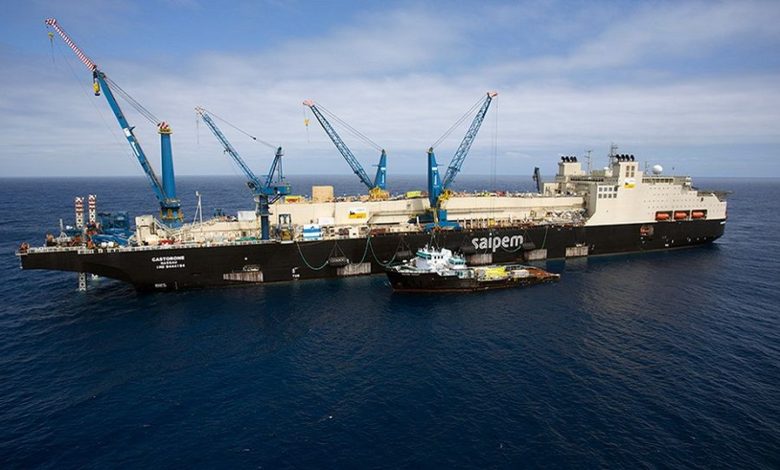
Saipem’s latest contract highlights the increasing role of international firms in Saudi Arabia’s offshore development, particularly in the oil and gas sectors. The company will be tasked with the engineering, procurement, construction, and installation (EPCI) of several offshore facilities, a vital component of the kingdom’s long-term energy expansion plan. This strategic contract aligns with Saudi Arabia's vision to strengthen its offshore infrastructure as global energy markets face increased volatility and demand shifts.
The scope of Saipem's work includes the construction of subsea pipelines, risers, and flowlines, along with the installation of offshore platforms and other related infrastructure. This large-scale project is set to boost Saudi Arabia’s production capabilities, enhancing its oil export capacity in the context of fluctuating global energy demands and the push towards securing energy supply chains.
Saudi Arabia, under its ambitious Vision 2030 plan, is working to diversify its economy, reduce its dependence on oil, and modernize its infrastructure. However, oil and gas remain key drivers of the kingdom's economy, and offshore developments play a pivotal role in maintaining the country's status as a top global oil producer. Saipem's involvement in this expansion underscores the strategic partnership between Saudi Arabia and international engineering giants in meeting these objectives.
The contract awarded to Saipem will enhance Saudi Aramco's offshore oil production capacity, as the state-owned oil company continues to invest heavily in offshore resources. This contract forms part of the broader trend in the Gulf region, where countries are increasingly focusing on maximizing offshore production potential in response to market challenges and energy transition pressures. Saudi Aramco, in particular, has been ramping up its offshore activities as part of its strategy to maintain its leading position in the global oil market.
Saipem’s long-standing expertise in complex offshore projects, particularly in harsh and deepwater environments, was likely a decisive factor in its selection for the Saudi Arabian contract. Over the years, the company has completed numerous similar projects in the Middle East and other regions, gaining a reputation for handling technically challenging projects that require advanced engineering and technological solutions.
Saudi Arabia has been keen to enhance its offshore production capacity as it faces both internal and external pressures related to energy security. The demand for oil and gas has remained resilient, even as many parts of the world move toward cleaner energy sources. Saudi Arabia is balancing its domestic energy transition with continued investment in oil and gas, recognizing the pivotal role the sector will play in the global economy for decades to come.
With the increasing geopolitical tensions affecting energy supplies, particularly in Europe, and the Middle East's role as a key supplier, Saudi Arabia's push to expand offshore capabilities reflects its intention to secure a more resilient supply chain. Saipem’s role in this project is crucial as Saudi Arabia seeks to build more robust infrastructure to withstand market fluctuations and ensure continuous production capacity.
The new offshore developments are also expected to bring technological innovation and enhanced operational efficiencies. Saipem has been a leader in integrating digital technologies and advanced subsea equipment, which will be pivotal in ensuring the success of the offshore platforms and associated infrastructure. This blend of innovation and expertise aligns well with Saudi Arabia’s push to modernize its oil and gas sector while maintaining a competitive edge globally.
Furthermore, the contract win for Saipem comes at a time when international oil companies are increasingly being scrutinized for their roles in global carbon emissions. While the shift to greener energy is evident, Saudi Arabia's decision to award such a large contract to Saipem demonstrates its intention to maintain strong oil output while gradually transitioning to a more diverse energy mix. The involvement of firms like Saipem indicates a longer-term strategy in which oil remains a vital component of global energy consumption, even as cleaner alternatives emerge.
This contract win also places Saipem in a favorable position for future projects in the region. As the Middle East continues to invest in offshore oil and gas development, other major contracts are expected to follow, driven by regional ambitions to stay at the forefront of the energy market. Saipem’s experience and success with large-scale projects in challenging environments could result in further collaboration with Saudi Arabia and other Gulf states as they continue their offshore expansions.
Saudi Arabia’s commitment to expanding its offshore oil infrastructure is not only a response to short-term market needs but part of a longer-term strategy to reinforce its position as a global energy leader. Saipem's $2 billion contract serves as a clear indication of the country's intent to prioritize its offshore reserves while navigating the complexities of the global energy transition.
Topics
Saudi Arabia
